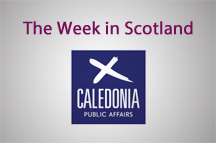 It’s less than seven weeks until the Referendum on 18th September. The weekly barrage of polls suggest that although the Yes campaign has gathered some ground No will prevail. But there is time enough for that to change if after several months of campaigning anyone is still listening.
It’s less than seven weeks until the Referendum on 18th September. The weekly barrage of polls suggest that although the Yes campaign has gathered some ground No will prevail. But there is time enough for that to change if after several months of campaigning anyone is still listening.
There are suggestions from some pollsters that many people have turned off the TV, gone into the garden and are binning all leaflets through the door. The Commonwealth Games is under way in brilliant weather (so far), the holiday season is in full swing and the new football season is not far over the horizon. There are welcome distractions it would seem.
The battle will go on right up to the wire of course with attention being devoted to the undecideds, the number of whom estimates range from 12% to 20% of the electorate. Yes are targeting Labour voters, especially in traditional Labour-voting areas, non- voters and the least well off saying you’ve no stake in the current set up independence can only be an improvement whilst No are saying the risks are too great and the costs unknown.
The two campaigns are not particularly impressive.
From Yes the electorate sees through the land of milk and honey line that says that pensions will go up, the minimum wage will rise, that everyone will be better off by x hundred £s, that English consumers will still fund Scottish renewable electricity generation, that transitional costs will be minimal, that all English, rest of the UK, European and worldwide bodies will just agree to whatever the SNP Government asks for on request.
From No the electorate wants to know what is on offer constitutionally after a no vote because the status quo on devolution is not acceptable. This is proving difficult for three political parties to formulate let alone articulate. Whilst the charge that the No campaign is negative has been blunted to some extent, their campaign does tend to be reactive, seem to have fewer fresh ideas and rely on risks and costs as the most persuasive arguments.
So what do clients in the business community think? Most will maintain neutrality to the end but all will welcome the end of uncertainty that the vote will bring. Some of course worry that a Yes vote will bring on a period of two or three years of different uncertainties but at least a course will have been set overnight on 18th/19th September. But will it? The worst possible outcome will be a very narrow result. A close Yes will lead to call for another vote on the terms and conditions of separation. A close No vote will lead to the neverendum syndrome of another vote in a few years’ time. Nicola Sturgeon has already said she’d like a second vote within 15 years in the event of a narrow rejection of separation.
 For most businesses, answers, to date mostly entirely lacking, to the big ticket items are the key. If Yes, what will be the currency? If Yes, how long will Scotland be out of the European Union? If No, will Scotland influence the UK to stay on in the EU? Whatever the result where is it best to be headquartered? Where will interest rates be? How will taxes to fund the transitional costs and the new state be levied? If No, is there yet another period of constitutional upheaval ahead in further developing devolution?
For most businesses, answers, to date mostly entirely lacking, to the big ticket items are the key. If Yes, what will be the currency? If Yes, how long will Scotland be out of the European Union? If No, will Scotland influence the UK to stay on in the EU? Whatever the result where is it best to be headquartered? Where will interest rates be? How will taxes to fund the transitional costs and the new state be levied? If No, is there yet another period of constitutional upheaval ahead in further developing devolution?
Some businesses have a clear commercial interest in the status quo of course. For others, the result will make little practical difference. A few will incur both additional costs and business opportunity. In this particular category lies data storage, handling and processing. Unmentioned yet by either campaign to date is the bill to an independent Scotland Government for changes in these arrangements which could be as high as £200million in just one instance. A space to watch!














